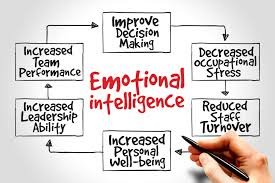Title: The Importance of Emotional Intelligence in the Workplace: Building Stronger Teams and Driving Success
Introduction:
Emotional intelligence (EI) refers to the ability to understand and manage one’s own emotions, as well as the emotions of others. In the workplace, emotional intelligence plays a crucial role in fostering effective communication, building strong relationships, and driving overall success. This article explores the significance of emotional intelligence in the workplace and highlights the benefits it brings to individuals and organizations alike.
- Enhancing Communication:
Emotional intelligence enables individuals to communicate effectively by understanding and expressing their own emotions in a constructive manner. It also facilitates the ability to empathize with others, listen actively, and interpret non-verbal cues accurately. By cultivating emotional intelligence, employees can establish clear and open lines of communication, leading to better collaboration, reduced conflicts, and improved problem-solving. - Building Stronger Relationships:
Workplaces thrive on positive relationships among colleagues, superiors, and subordinates. Emotional intelligence enables individuals to develop strong interpersonal connections by recognizing and responding appropriately to the emotions and needs of others. By demonstrating empathy, understanding, and respect, employees can foster a supportive and inclusive work environment, resulting in higher job satisfaction and increased employee engagement. - Resolving Conflicts:
Conflicts are inevitable in any workplace, but emotional intelligence equips individuals with the skills to effectively manage and resolve these conflicts. By being self-aware and regulating their emotions, employees with high emotional intelligence can approach conflicts with a calm and rational mindset. They can also understand the perspectives of others, find common ground, and negotiate win-win solutions. This ability to handle conflicts constructively contributes to a more harmonious and productive work environment. - Leadership and Decision-Making:
Effective leaders possess high emotional intelligence, as they must navigate complex interpersonal dynamics and inspire their teams. Leaders with emotional intelligence can connect with their employees on a deeper level, understand their motivations and concerns, and provide the necessary support and guidance. Additionally, emotional intelligence aids in making well-informed decisions by considering the emotions and needs of various stakeholders, leading to better outcomes and employee buy-in. - Adaptability and Resilience:
The modern workplace is characterized by constant change, uncertainty, and pressure. Emotional intelligence helps individuals develop adaptability and resilience, allowing them to cope with stress, setbacks, and challenging situations. By being aware of their own emotions and managing them effectively, employees can maintain a positive mindset, stay motivated, and navigate through obstacles with greater agility.
Conclusion:
Emotional intelligence is not just a desirable trait but an essential skillset in today’s workplace. It empowers individuals to communicate effectively, build strong relationships, resolve conflicts, lead with empathy, and thrive in a fast-paced and ever-evolving environment. By fostering emotional intelligence within organizations, employers can create a culture that values emotional well-being, collaboration, and overall success.


